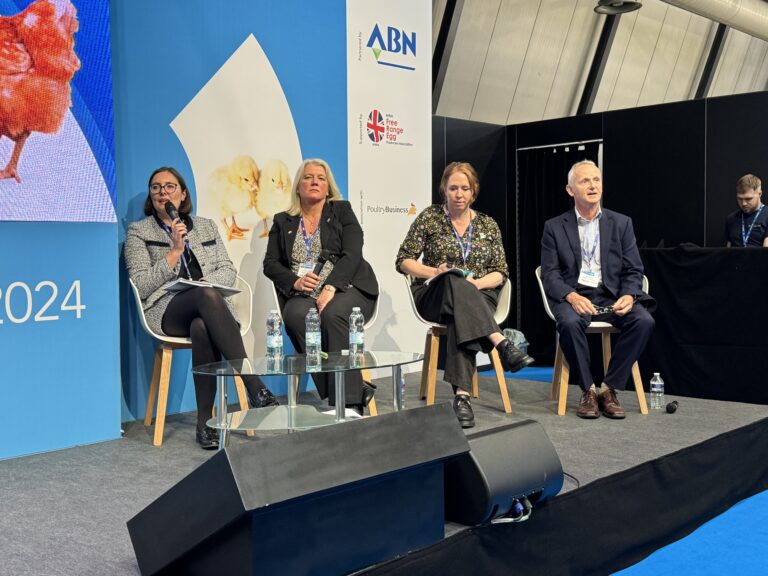Following a series of spats between farmers and assurance schemes, a new approach of full-chain collaboration is being emphasised. By Michael Barker
There was a mood of conciliation and collaboration in the air during a session on farm assurance schemes at the British Pig & Poultry Fair, where scheme operators admitted mistakes had been made and promised things would improve. Farmers have been riled by a succession of changes to assurance schemes over the past few months, with repeated claims that they have not been properly consulted.
First, Red Tractor announced – and then ultimately axed – its Greener Farms Commitment (GFC) after a backlash from farmers and the NFU. Then, the RSPCA announced it was pausing the introduction of new standards for laying hens, promising to listen more closely to members. And most recently, producers were left stunned after Sedex updated its SMETA ethical audit, introducing controversial new wage requirements around worker travel and visa costs. Again, the NFU has called for a pause and rethink.
The situation made for a poignant backdrop to the session on farm assurance at the Pig & Poultry Fair at the NEC in Birmingham, where representatives of the Red Tractor and RSPCA said lessons had been learned and a more collaborative era would begin.
Speaking first, Philippa Wiltshire, head of operations at Red Tractor, began her talk by stressing that an independent governance review has been carried out following the GFC fiasco, and that the AFS board are in the process of implementing key recommendations. “Lessons have been learnt and as part of that it’s about needing to engage with all stakeholders in the sector in everything that we do,” she said. “But also to significantly improve our farmer communication and engagement.”
Red Tractor has increased its budget to carry out that commitment, Wiltshire said, and will be focusing on three key strands of transparency, audit efficiency and value. Data will also play an increasingly important role as the organisation moves forward. Wiltshire gave an update on new developments at Red Tractor, pointing out that last June it announced a new programme of auditing, meaning that in a 24-month period a business must have two audits, one of which must be physical.
With media and NGO pressure on the impact the poultry industry has on the environment, Red Tractor is also piloting a “slim and robust set of standards” with producers in the Wye Valley to help demonstrate the responsible use of all applications to the land where poultry litter is also being applied. “It could potentially be made available to the rest of the industry, but it’s a very complex subject, and we will be sharing more on the results of that pilot,” she said.
Next to take the stage, Kelly Grellier, interim chief operating officer at RSPCA Assured, underlined that the charity’s ambition is for more than half the UK’s farmed animals to be reared to RSPCA Assured welfare standards, and for farmed animals to increasingly experience better conditions.
“We recognise that to achieve that we can’t do it alone,” she said, “and this year has been a very stark reminder of our need to engage really well with producers. We are doing a lot to rectify that. We recognise we didn’t do everything we needed to bring industry with us, so we hold our hands up and will spend the next nine months working with producers to understand better from their perspective.”
Grellier outlined five current priority focus areas – inspiring consumer support for higher farmed animal welfare; enhancing the member experience; assuring and influencing higher farmed animal welfare standards; building trusted strategic partnerships to drive a productive end-to-end supply chain; and investing in RSPCA Assured’s people, culture, tech, data, insight and operational excellence.
For the future, Grellier stressed that increased commercial growth and consumer awareness of the RSPCA Assured brand are key goals, alongside better engagement and dialogue with members, increased support for members and a reduced audit burden.
Also speaking during the session was Mark Williams, chief executive of the British Egg Industry Council. He pointed out that version 8 of the Lion code now has more focus on environment, arguing that it’s better for the industry to take the lead on this issue. “There is nothing onerous there but we are setting a direction of travel, because if we don’t do it and control it, we know government will do it for us, and I would suggest that’s the last thing you want,” he said.


